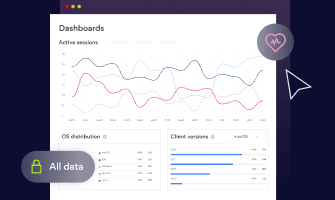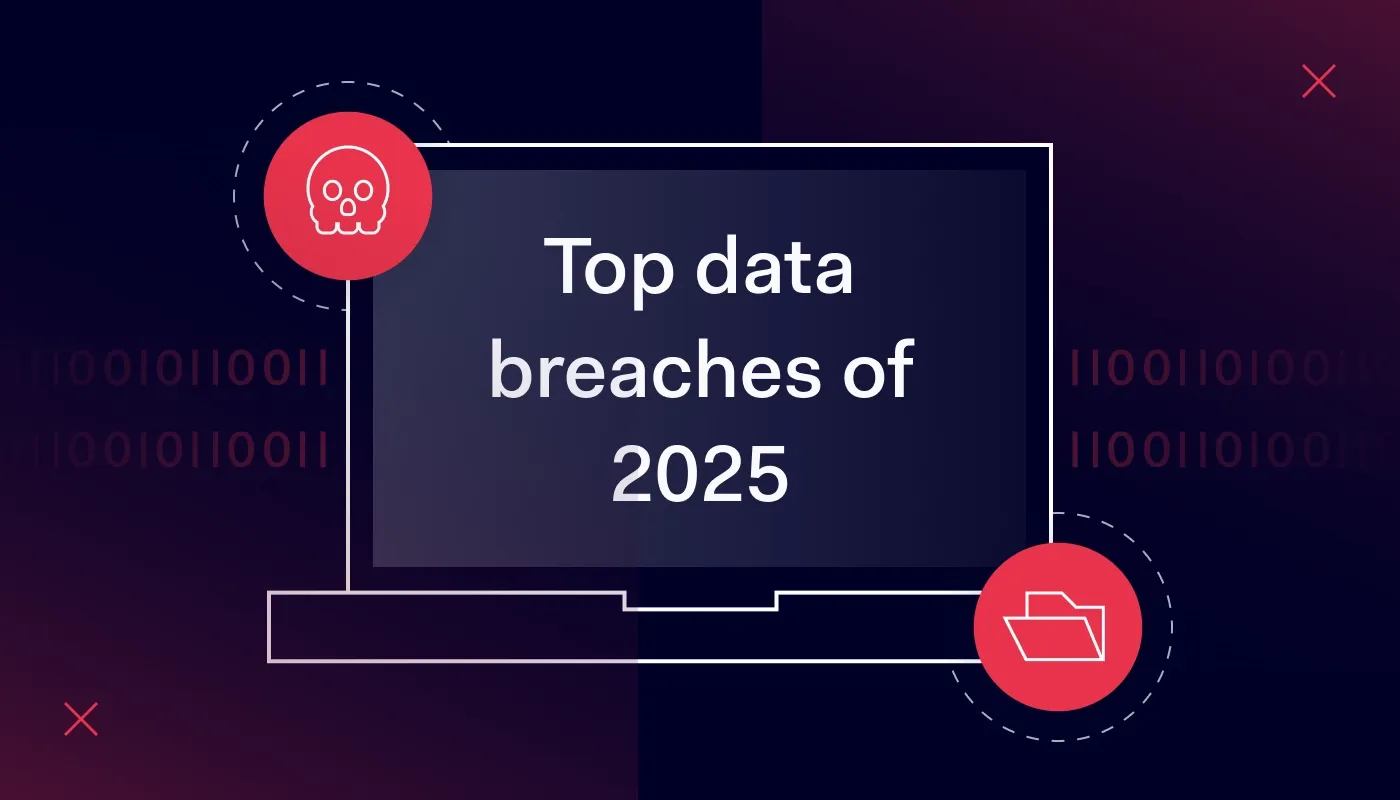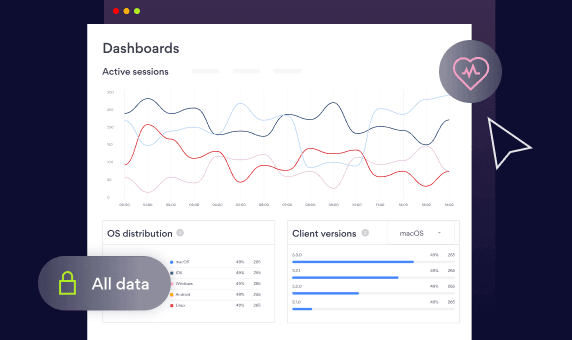Summary: This guide outlines key cybersecurity practices for law firms, highlighting risks, real-world examples, and tailored solutions to protect sensitive client data.
The legal industry is built on trust, confidentiality, and carefully handling of sensitive client information. However, this reliance on sensitive data has made law firms a prime target for cyber-attacks. From personally identifiable information (PII) to financial records and intellectual property, the data managed by law firms is invaluable—and vulnerable.
A single cybersecurity incident can lead to devastating consequences: loss of client trust, legal repercussions, and significant financial penalties. Yet, many legal professionals remain unsure about how to strengthen their cybersecurity.
In this guide, we’ll explore cybersecurity for law firms, focusing on essential steps to protect your law firm’s data, maintain client trust, and ensure compliance with regulatory standards.
Key takeaways
Understand the unique cybersecurity risks law firms face.
Implement strong passwords and secure access management.
Develop a robust incident response plan.
Leverage advanced technology like Virtual Private Networks (VPNs) and cloud security tools.
Stay compliant with data protection regulations.
The cybersecurity threat landscape for law firms
Cybercriminals increasingly target the legal industry, and the numbers are alarming. According to an American Bar Association (ABA) study, 29% of law firms experienced a cybersecurity breach in 2023. These incidents lead to downtime, lost revenue, and long-term damage to a firm’s reputation.
Phishing attacks
According to the Verizon Data Breach Investigations Report, phishing is one of the most prevalent cyber threats, accounting for 36% of data breaches. These attacks typically involve fraudulent emails that trick employees into sharing sensitive information, such as passwords or client details.
Ransomware
Ransomware attacks involve malicious software encrypting a firm’s data, rendering it inaccessible until a ransom is paid. Even after payment, there’s no guarantee that data will be restored.
Insider threats
Insider threats can arise from employees or contractors misusing their access to sensitive information. This may be intentional, such as data theft, or accidental, like falling for a phishing scam. Insider threats can compromise client confidentiality and result in significant financial or reputational damage.
Advanced Persistent Threats (APTs)
APTs involve prolonged and targeted attacks where hackers gain access to a firm’s network and remain undetected for extended periods. Continuous access and exfiltration of sensitive data make these threats particularly damaging.
Data breaches
Data breaches occur when unauthorized individuals gain access to sensitive information. These breaches can result from weak security protocols, outdated software, or employee negligence. It can lead to legal penalties, loss of client trust, and significant financial consequences.
Business email compromise (BEC)
BEC is a form of phishing attack that involves cybercriminals impersonating a trusted individual or entity to deceive employees into transferring funds or sharing critical information.
Your clients trust you—protect that trust
Keep sensitive legal data safe with tailored cybersecurity
Real-world examples: A wake-up call for the law sector
In November 2023, Allen & Overy experienced a ransomware attack that affected a small number of storage servers. The attackers threatened to publish sensitive data unless a ransom—potentially between $51.5 million to $76 million—was paid. Although the firm's core systems were unaffected, operations were disrupted, and clients had to be informed about potential threat to data security.
Similarly, a cyber-attack exploiting a vulnerability in the MOVEit file transfer software impacted multiple law firms, including Kirkland & Ellis and Proskauer Rose. This attack significantly disrupted conveyancing practices, delaying property completions and causing operational chaos.
The number of successful cyber attacks against US law firms has increased significantly in recent years. In the first five months of 2024 alone, 21 firms filed data breach reports with state attorneys general offices, compared to 28 breach reports filed in total for the previous year. This represents a substantial increase in the frequency of reported incidents.
The legal sector has faced escalating ransom demands from cybercriminals. The average ransom demand following an attack on a legal firm is $2.47 million, although the average ransom paid is lower at $1.65 million. These astronomical figures highlight the severe financial risks law firms face from cyber-attacks.
Why law firms are attractive targets
Law firms occupy a unique position as gatekeepers of highly sensitive and valuable information, making them prime targets for cybercriminals.
Here's why they're often in the crosshairs:
Volume and sensitivity of client data. Legal firms handle many personally identifiable information (PII), financial records, and other confidential documents. This makes them a gold mine for attackers looking to commit identity theft, financial fraud, or corporate espionage.
Handling intellectual property and mergers. Many firms manage intellectual property portfolios, trade secrets, and high-stakes mergers and acquisitions. If stolen or exposed, such data could disrupt billion-dollar deals or give competitors an unfair advantage. Cybercriminals, including nation-state actors, often target these assets for profit or strategic gains.
Reliance on cloud platforms. As the legal industry increasingly adopts cloud-based solutions and supports remote work, vulnerabilities in these platforms become exploitable. Without strict data security measures, cloud misconfigurations, phishing attacks, and unauthorized access can expose confidential information.
Weaker security infrastructure. Despite managing high-value information, many law firms—especially smaller ones—lack robust cybersecurity defenses compared to other industries. Limited IT budgets and insufficient awareness of evolving cyber threats increase their vulnerability.
The fallout of a cyber-attack on a law firm can be devastating, both financially and reputationally:
Legal and financial liabilities: Firms may face lawsuits, regulatory fines, and substantial costs to recover lost data
Loss of clients and revenue: A breach erodes client trust, often resulting in loss of business and damaged relationships
Reputation damage: Rebuilding a tarnished reputation in a trust-driven industry like law is exceptionally challenging
By understanding their unique vulnerabilities and implementing strong cybersecurity practices, law firms can reduce risk and protect their clients’ sensitive information.
Related articles

Agnė SrėbaliūtėOct 4, 202410 min read

Anastasiya NovikavaOct 1, 202515 min read
12 law firm cybersecurity best practices
To protect your firm’s cybersecurity and reputation, consider implementing these law firm cybersecurity best practices:
1. Develop a comprehensive incident response plan (IRP)
A robust IRP outlines the steps to take during a cyber-attack or data breach, ensuring a swift and effective response. Include clear roles, communication protocols, and procedures for mitigating damage. Regularly test and update the plan to reflect evolving threats and organizational changes.
2. Train employees on cybersecurity awareness
Human error is one of the leading causes of cyber incidents. Conduct regular training sessions to teach staff how to identify phishing emails, handle sensitive information securely, and adhere to data security policies. Tailor training to address specific threats that law firms face, such as social engineering attacks targeting confidential data.
3. Enforce strong password policies and use password management tools
Weak or reused passwords are a common vulnerability. Require employees to create strong, unique passwords and encourage the use of password managers to simplify secure authentication. For example, NordPass’ password management solutions provide easy-to-use tools that ensure compliance with password best practices.
4. Secure remote access with VPNs
As remote work has become standard, ensuring secure network access is crucial. Use VPN solutions like NordLayer’s Site-to-Site VPN to create encrypted tunnels that protect your firm’s systems and data from external threats. This safeguards both remote employees and sensitive communications.
5. Regularly back up critical data
Frequent backups protect your firm from data loss due to ransomware or accidental corruption. Store backups in secure locations, such as offsite servers or encrypted cloud platforms. Test backup integrity periodically to ensure data can be restored quickly if needed.
6. Implement multi-factor authentication (MFA)
MFA adds an essential layer of security by requiring users to verify their identity using two or more factors, such as a password and a one-time code. This makes it significantly harder for attackers to gain unauthorized access.
7. Encrypt data in transit and at rest
Use encryption protocols like AES-256 and ChaCha20 to protect sensitive law firm data while it is transmitted and stored. This ensures that even if unauthorized users get access to the data, they can’t read it.
8. Migrate to the cloud with a security-first approach
Cloud services offer scalability and flexibility but come with unique risks. When transitioning to the cloud, implement robust security measures such as access controls and encryption. NordLayer’s cloud access solutions provide a secure environment for managing and protecting your firm’s resources.
9. Comply with data protection regulations
Adherence to legal frameworks like GDPR, HIPAA, or industry-specific requirements is vital to avoid legal penalties and protect client trust. Conduct regular audits, review compliance measures, and ensure third-party vendors meet regulatory standards.
10. Monitor systems and apply updates regularly
Outdated software is a common target for attackers. Establish a schedule for monitoring, patching, and updating all systems and applications. Use automated tools to identify vulnerabilities and prioritize critical updates.
11. Establish role-based access controls (RBAC)
Limit access to confidential data based on employees’ roles and responsibilities. Implement the principle of least privilege, ensuring that users can only access information necessary for their tasks. This minimizes the risk of insider threats or accidental exposure.
12. Partner with cybersecurity experts
Collaborate with experienced network security providers like NordLayer to implement tailored cybersecurity measures. Their expertise can help you stay ahead of emerging threats and adopt advanced technologies, protecting client data and critical systems.
Technology solutions for law firm security
Technology plays a key role in strengthening cybersecurity for law firms. By using advanced tools and solutions, legal practices can stay ahead of the lurking threats.
Cloud security solutions. As legal practices increasingly migrate operations to cloud environments, it becomes equally important to secure those platforms. Network security solutions like NordLayer ensure that sensitive information remains protected, even remotely accessed. Features such as secure
network access controls, data encryption, and activity monitoring help prevent unauthorized access and data breaches, keeping your law firm compliant and safe.
Virtual Private Networks (VPNs) for remote work. Remote work has become a standard in the legal sector, but it also introduces new cybersecurity challenges. VPNs create encrypted tunnels to safeguard sensitive communications and data transfers, ensuring seamless and secure connectivity for legal teams—whether in the office or on the move.
Advanced access control solutions. Access control is a critical component of legal cybersecurity. NordLayer’s flexible access control tools, including
Zero Trust Network Access (ZTNA), restrict access to sensitive resources based on user roles and authentication. These tools minimize the risk of unauthorized access, even if login credentials are compromised.
Device Posture Security. Validating endpoints for compliance with security protocols helps reduce risks posed by compromised or unsecured devices. This feature ensures that only trusted devices access a law firm’s network.
Cloud Firewall for enhanced protection. NordLayer’s Cloud Firewall enables firms to define and enforce strict access policies, ensuring only authorized traffic reaches critical systems. This tool prevents unauthorized access, blocks malicious threats, and provides visibility into network activity to safeguard sensitive legal data.
Tailored cybersecurity for law practices
Cybersecurity in the legal sector requires solutions that address the unique challenges of handling law firm's data, intellectual property, and regulatory compliance. NordLayer cybersecurity solutions for law firms offer tailored tools to meet these needs:
Virtual Private Networks (VPNs): Secure remote access for legal professionals with encrypted tunnels, allowing teams to work confidently from anywhere
Zero Trust Network Access (ZTNA): Restrict access to critical systems and data using a "trust no one, always verify" approach, ensuring only authorized personnel can interact with sensitive resources
Device management and monitoring: Track, validate, and secure all devices accessing your network, ensuring endpoint security across the firm
Cybersecurity is essential for all law firms, regardless of their size. Whether you run a small, medium, or large practice, protecting client trust and critical data is non-negotiable. With NordLayer’s cutting-edge tools, your firm can stay ahead of cyber threats and maintain robust security standards.
Contact our sales team today to explore how NordLayer’s tailored solutions can strengthen your law firm’s cybersecurity. Let us help you safeguard your reputation, operations, and data with technology designed for the unique needs of legal professionals.

Agnė Srėbaliūtė
Senior Creative Copywriter
Agne is a writer with over 15 years of experience in PR, SEO, and creative writing. With a love for playing with words and meanings, she crafts content that’s clear and distinctive. Agne balances her passion for language and tech with hiking adventures in nature—a space that recharges her.










